VCOSS Annual Report 2023-24
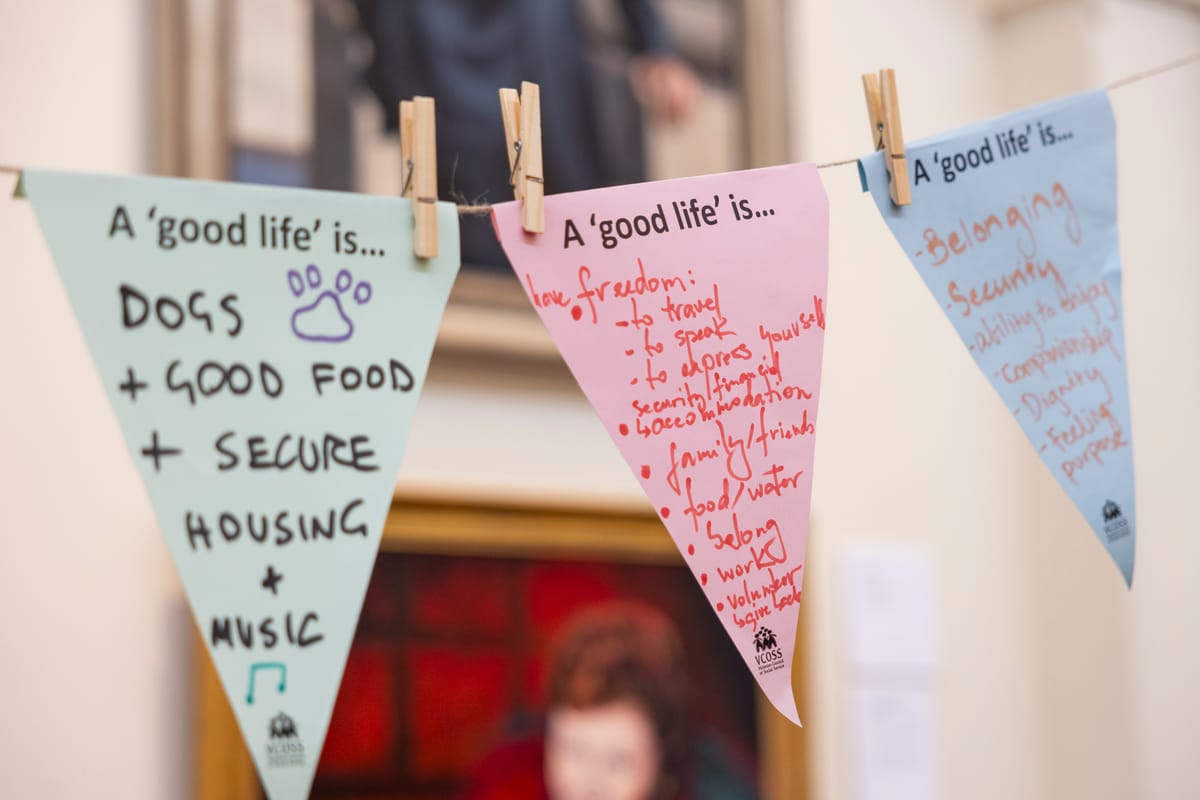
President and CEO's Introduction

Welcome to VCOSS’s new-look Annual Report for 2023–24. Like the format of this report, this has been a year of transitions, requiring a keen focus on relationships and maintaining momentum in the face of a constrained fiscal environment, compounding crises, a failed referendum and spiralling demand for community services and support.
At VCOSS, new interim CEO Juanita Pope was appointed in September as we farewelled Emma King after a decade of distinguished service. In November following a comprehensive search, the Board was delighted to announce Juanita as the permanent new CEO. Around that same time, the Victorian Government farewelled Premier Daniel Andrews after nine years of leadership, and welcomed new Premier, Jacinta Allan. Reshuffled ministries followed. This made for an extremely busy period of government engagement and relationship building for VCOSS staff.
As always, robust relationships were the bedrock of our advocacy and enabled VCOSS to drive forward the sector’s priorities with government. Our submission on the 2024–25 State Budget was strategically geared towards action on cost-of-living and longer-term system change. While the May budget was ‘modest’, it preserved funding for a range of community services and introduced initiatives which VCOSS called for, including a review of the Victorian Energy Upgrades scheme, community sector food relief grants and reforms to better support Victorian renters on low incomes.
As always, robust relationships were the bedrock of our advocacy
In the wake of the Budget, VCOSS’s annual flagship Treasurer’s Lunch provided members with a chance for the 200+ attendees to connect directly with government and ask Treasurer Tim Pallas some tough questions, including about mental health reforms, the housing crisis and the imperative to fund community services adequately.
On this last point, notably we negotiated an indexation formula for community services funding, which was codified in policy via a service agreement review process with sector representation led by VCOSS. We will keep pushing for fair, secure and sustainable funding for the sector and the timely receipt of promised funds.
VCOSS’s impact is underpinned by our wonderful members and made possible by our talented staff and dedicated board. We thank the membership for their contributions and insights, which are the foundations of our work. We thank the VCOSS staff, who didn’t skip a beat this year, demonstrating impressive expertise, professionalism and commitment, as well as fun and good humour. Finally we acknowledge the VCOSS Board who saw the organisation through this year of transitions with a combination of stability and openness to renewal that has kept VCOSS governance relevant, steady and contemporary.
With fiscal conditions still tight and international events contributing to unease, we know very little with certainty. But what we do know is that the work we are doing is vital. We know that, together, our stories, data and expertise hold power that can drive transformative solutions to wicked problems. Collectively, we are a force for change.
What we did
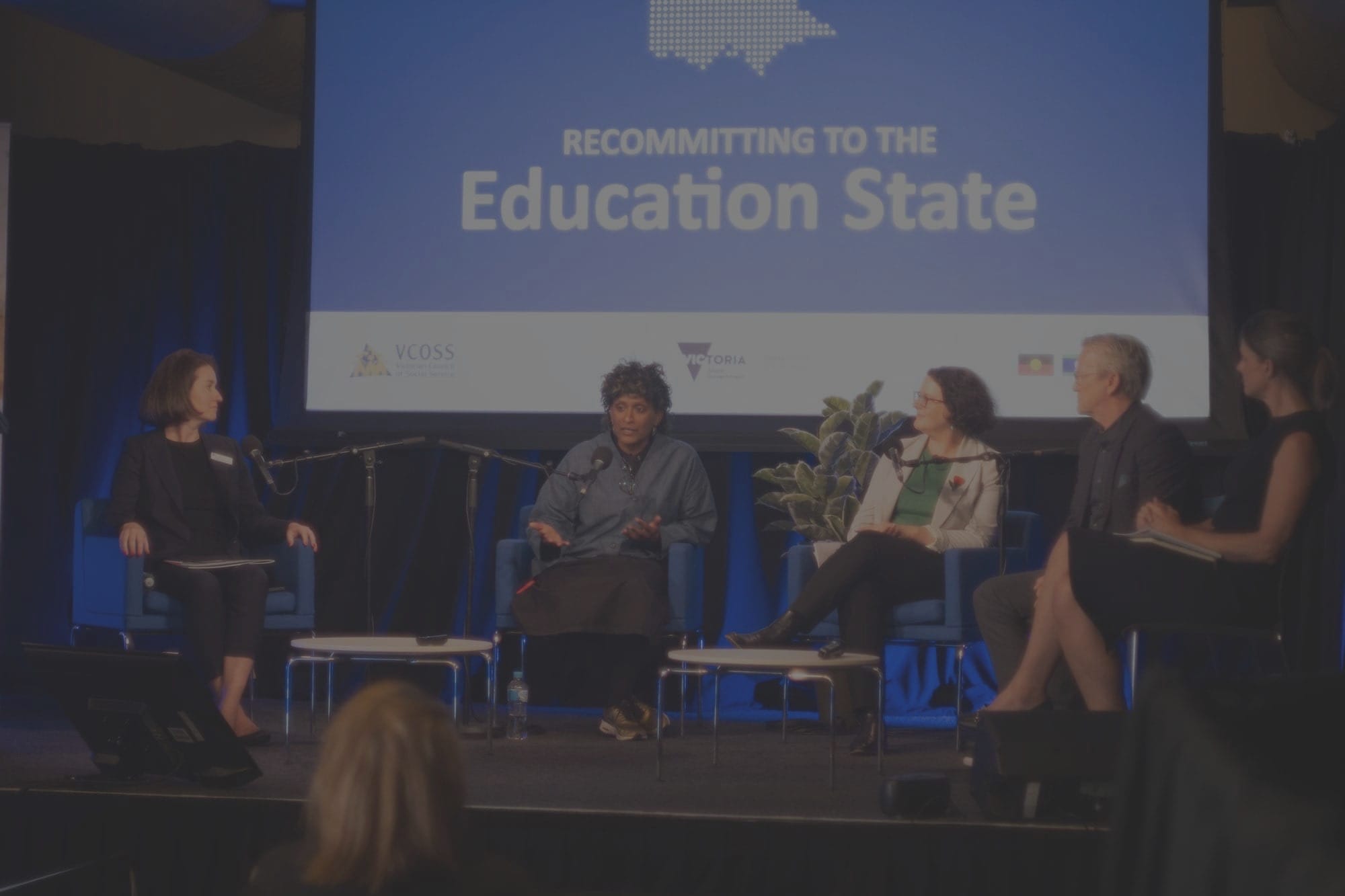
Advocacy and leadership
With the long-tail effects of the COVID pandemic still being felt, the cost-of-living crisis hit Victorians hard in 2023–24. As the price of essentials like food, housing, energy and medicine soared, our job as the representative voice of the community sector and of people in our communities doing it tough was more important than ever.
In this context and in a challenging budgetary environment, VCOSS’s ability to balance public-facing leadership with closed-door negotiations was vital to achieving a number of policy and advocacy wins for the sector and for Victorians experiencing poverty and disadvantage.
Some of the work we can be most proud of from 2023–2024 – as an organisation and a sector – includes:
We worked towards a fairer housing system in Victoria – especially for renters, both in social and private housing. Victoria’s rental rules have changed significantly in the last few years. As well as advocating to Government to give renters stronger minimum standards for safety, amenity and security, VCOSS has played a lead support and coordination role through our Renters Rights Rundowns. In 2023–24 we hosted online sessions addressing intersections between tenancy rights and family violence, thermal comfort and energy efficiency. These sessions reached more than 330 people, ensuring that community workers understood the changes and had the information they need to help disadvantaged renters exercise their rights.
Renters' Rights Rundown: How experiences of family violence affect housing
Through our Budget Submission and targeted engagement with ministers, we worked to preserve funding for current programs and services in a tight fiscal environment. Our Budget Submission was disseminated to the Victorian Government, the State Opposition, the Victorian Greens and other minor parties and cross-benchers, as well as VCOSS members and partners. Feedback on the Submission was almost 100 per cent positive. Government initiatives with direct links to our budget advocacy work include the Financial Management Amendment (Gender Responsive Budgeting) Act 2024, which provides a requirement to consider and promote gender equality and inclusivity in the pursuit of spending and taxing policies; and the introduction of a two-year pilot Inclusion Scholarships for social work placement program, through which eligible students can apply for financial help to complete student placements.
We gave our members and other sector stakeholders a valuable portal to power with the annual post-budget Treasurer’s event. This year’s event was a lunch at the Park Hyatt Melbourne, at which Treasurer Tim Pallas fronted up to a host of audience questions.
Tim Pallas faces an audience question about supporting families of people who are incarcerated
We worked with and for communities and community services organisations still affected by the 2022 Victorian floods, which were one of the worst flooding events in the state’s post-colonial history. After consulting with dozens of organisations in flood-affected areas to learn what they need to help their communities cope with the floods and with future extreme weather events, VCOSS made recommendations to government including reforming home and contents insurance to build disaster resilience. This contributed to momentum for the Federal Government’s inquiry into insurers’ responses to flood claims, at which VCOSS CEO Juanita Pope and Thriving Communities Director Libby Buckingham gave evidence about the devastating impacts of insurance industry failures on flood affected communities.
VCOSS CEO Juanita Pope and Thriving Communities Director Libby Buckingham giving evidence at the inquiry into insurers’ responses to flood claims
We undertook research into the link between poverty and the urban heat effect, finding that the six most disadvantaged LGAs of Melbourne were within the eight hottest areas. The research was widely picked up by media, resulting in more public and government recognition of the links between climate change and disadvantage.
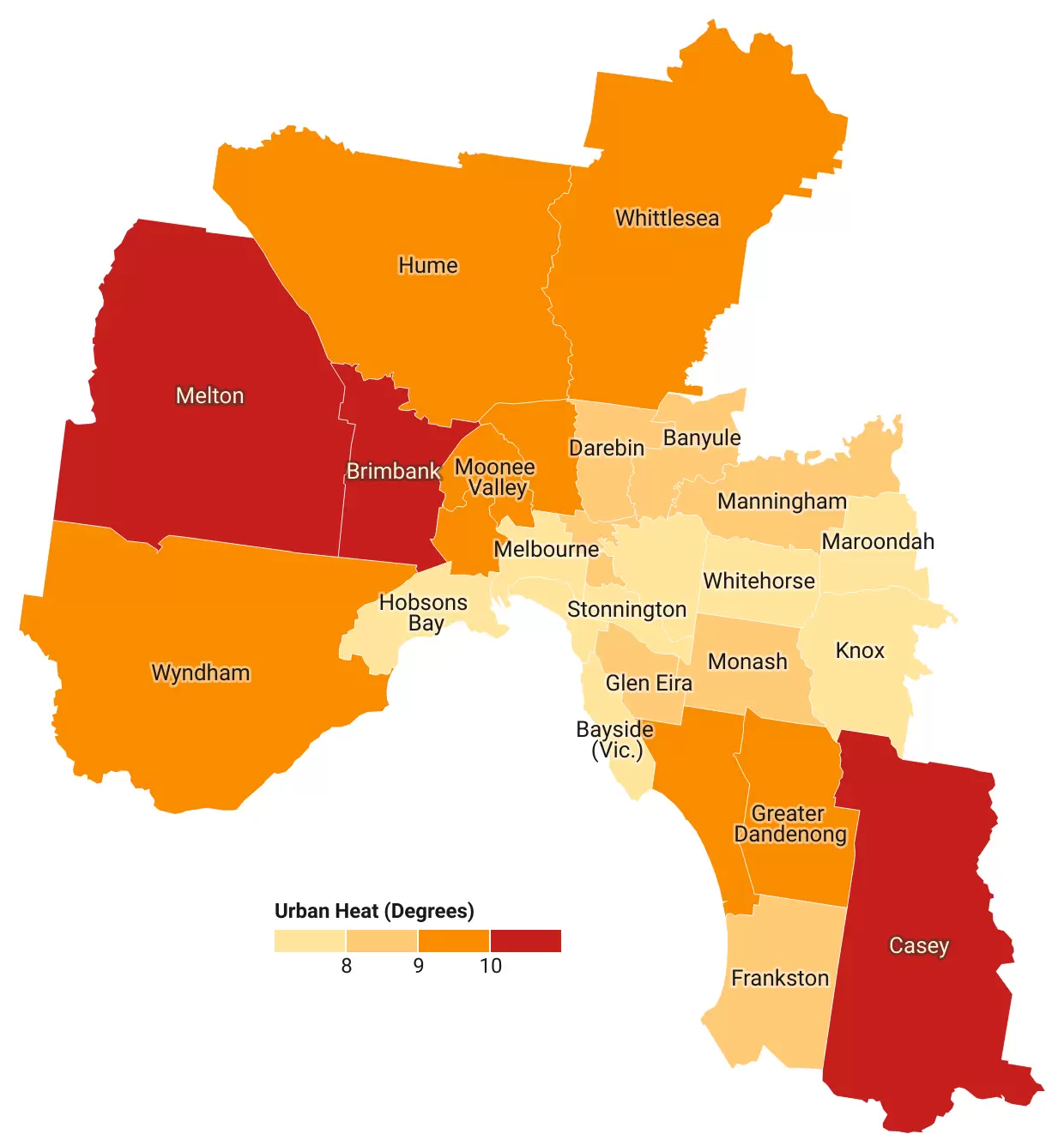
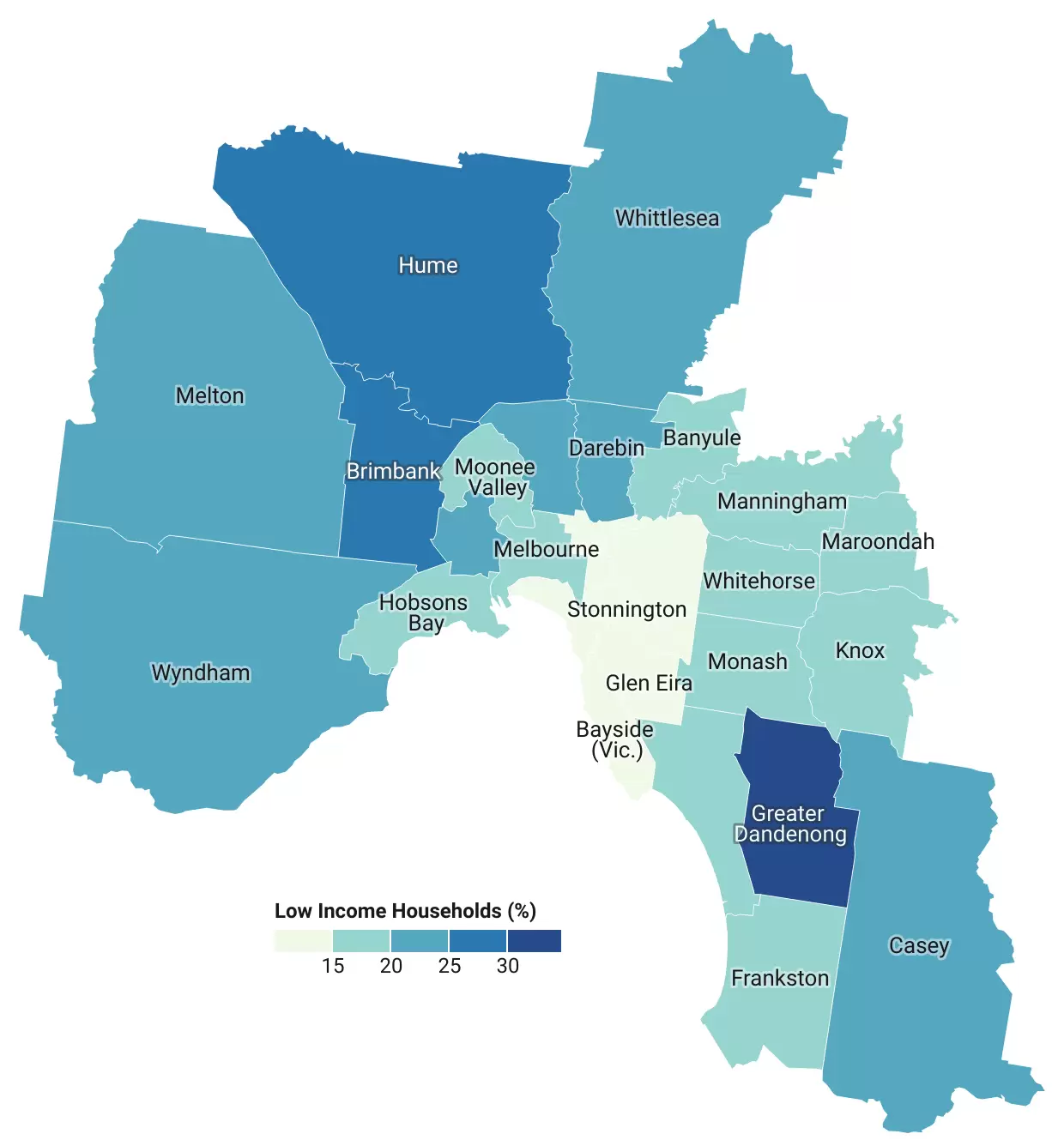
We listened to Victorian communities through the second VCOSS Listening Tour. To hear and amplify the voices of Victorians who don’t often get a ‘seat at the table’, we partnered with Neighbourhood Houses Victoria and other community organisations to host 15 sessions across Victoria. Each session had a focus on a particular cohort, including CALD women, young people, people with disabilities, and flood impacted communities. Insights from the tour were distilled in the Voices of Victoria report – launched by Minister Harriet Shing in December 2023 – and will be used to inform VCOSS policy and advocacy.
Juanita Pope speaking at the launch of the Voices of Victoria launch
We continued our productive partnership with the Department of Education (DE) through the annual Community Sector Education Forum. The Forum attracted a record number of attendees, and featured speakers including Deputy Premier and Minister for Education Ben Carroll and Minister for Children and Minister for Disability Lizzie Blandthorn. Addressing the theme ‘What Surrounds Us, Shapes Us’, the ministers and senior representatives from the DE, DFFH, peak bodies and academia shared the stage with experts in trauma-informed practice, education policy, alternative education, First Nations approaches to intergenerational healing, and anti-racism. This mix of voices and perspectives forged new connections and deepened our collective understanding of how to support disadvantaged children and young people to access equitable, inclusive and trauma-informed learning experiences and environments that equip them to thrive.
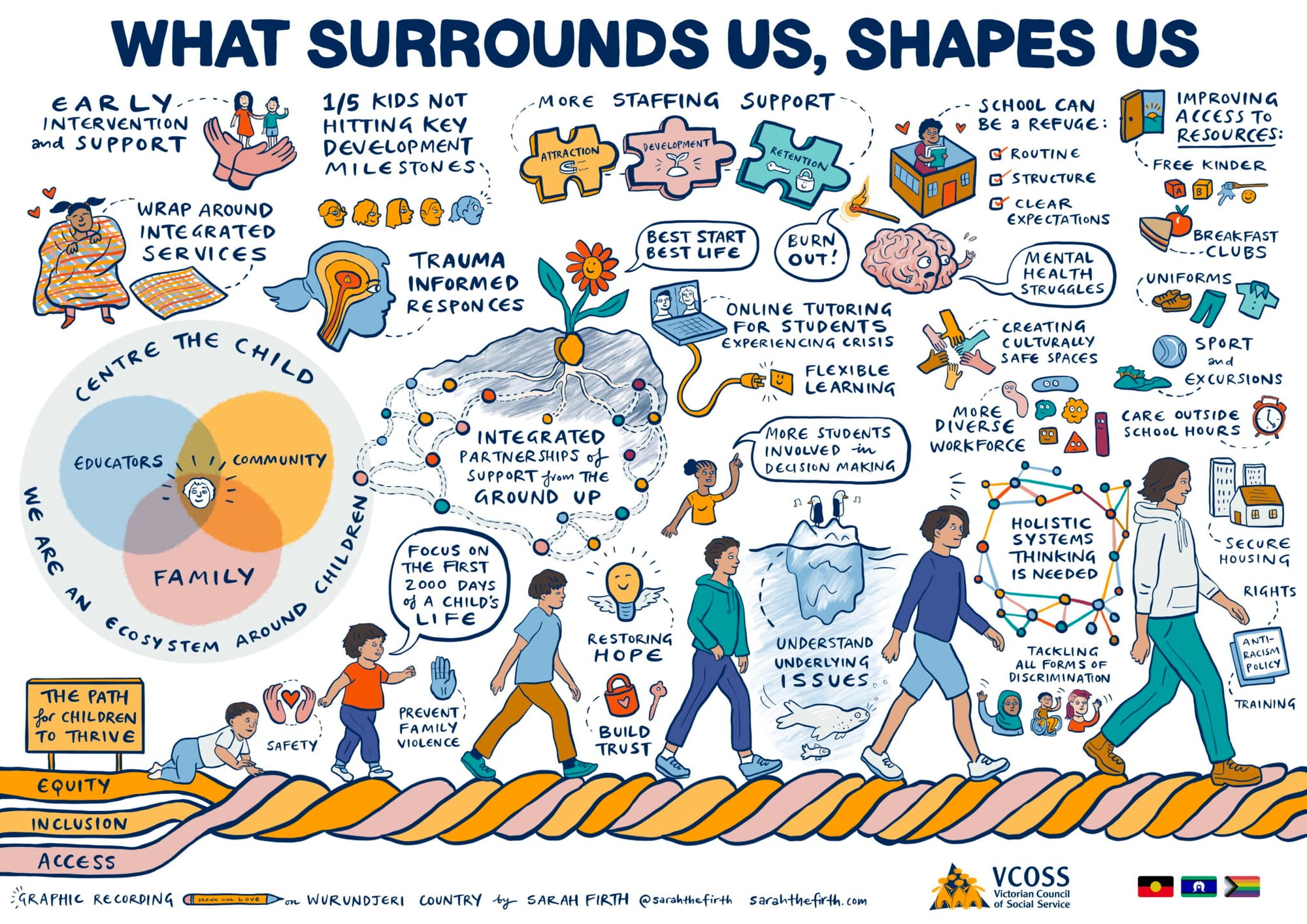
We led sector negotiations on contractual and regulatory reforms affecting community service organisations. Working with a sub-committee of the Human Services and Health Partnership Implementation Committee (HSHPIC), VCOSS led a group of sector representatives to negotiate standard contractual terms used by DFFH, DH, DE and ACFE to fund community services. We successfully negotiated the indexation policy referred to above, and longer notice periods for funding cessation, recognition of Indigenous intellectual and cultural property, and changes to reflect the establishment of the Social Services Regulator (SSR). We also worked closely with DFFH and the community services sector on the establishment of the new SSR regime through information events and member outreach to make sure sector organisations understood their obligations and the SSR was fit for purpose.
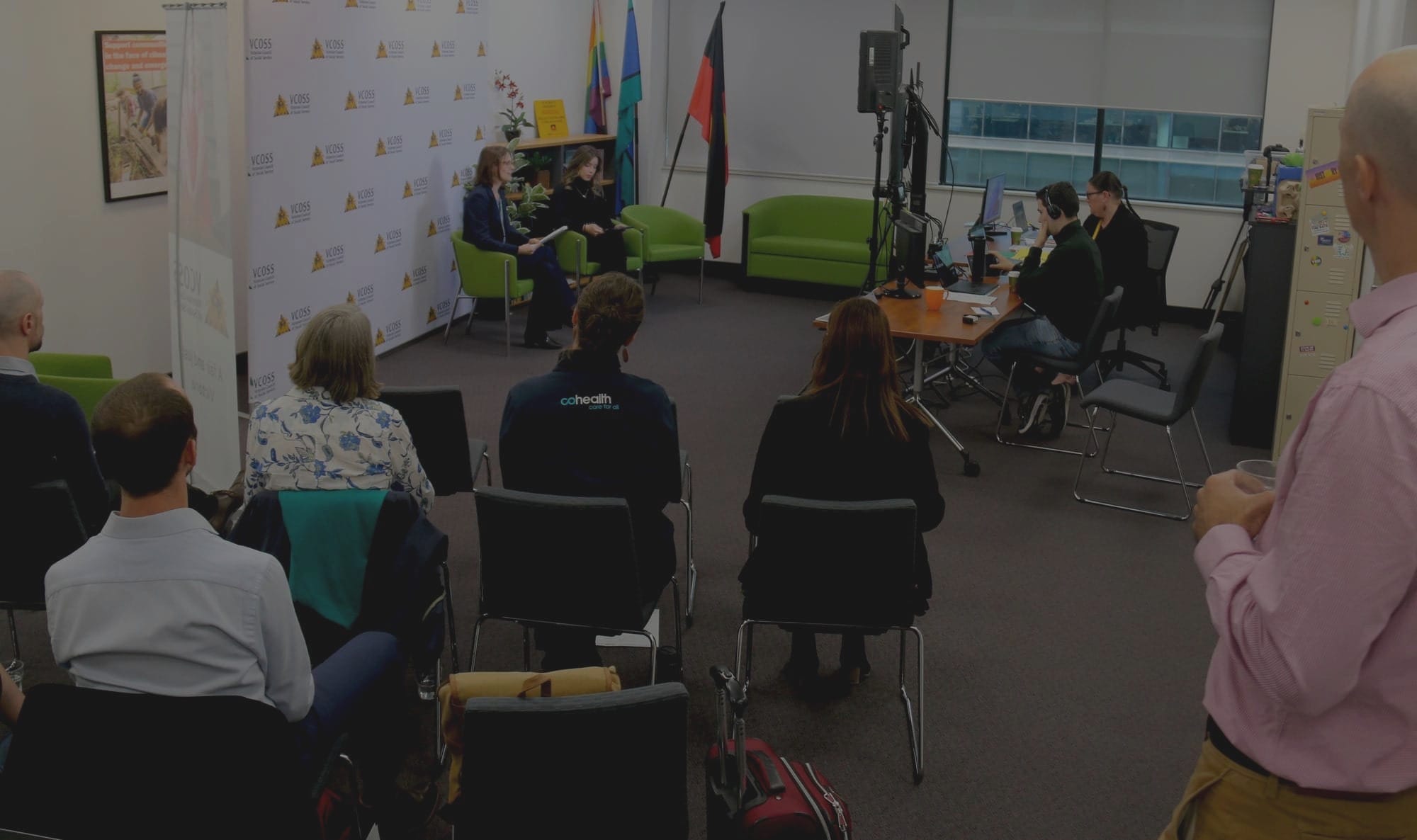
Partnerships and convening power
The community sector comprises almost 15 per cent of the total Victorian workforce, representing one of the largest industries – and growing – in the State. Working together, we are a force to be reckoned with, as we collectively bring our expertise to achieving better outcomes for Victorians who face systemic social and economic exclusion and injustice.
Through strategic partnerships and coalition-building, VCOSS showed the collective strength of this force in the social policy wins we achieved in 2023–24.
The ways we use our coalition-building power for change are:
We foster a strong and collaborative VCOSS membership and Victorian community sector
As well as working towards stronger minimum standards for renters through our submission to the proposed minimum standards for energy efficiency in rentals, VCOSS produced a submission guide to help members make their own impactful submissions. This will serve as a prototype for similar sector capacity-building work on future submissions.
In the climate space, VCOSS’s Climate Network for Community Organisations gathered more than 50 organisations from across the sector to share insights about how to protect community organisations and the people they serve – particularly people experiencing poverty and disadvantage – from escalating impacts of climate change.
We incubate ideas, partnerships and enterprises to support the community sector
We partnered with other peak bodies and DFFH to design and promote a new graduate program for community services employees. The Community and Social Services Graduate Program will invest in early-career professionals across the gamut of community service roles, helping to build the skilled and adaptable workforce our communities need into the future. We participated extensively in initial research and concept development to ensure that the program is accessible and inclusive for all graduate students, and that community employers are well supported to engage.
Through The Multicultural Resilience Project, we worked with four regional multicultural organisations across Victoria’s north and north-west to equip their local communities to recover after the 2022 floods and strengthen community resilience for the future. VCOSS partnered with the local grassroots organisations to co-produce a useful, individualised resource with each community. From delivering health advocacy training with seasonal workers in Shepparton to creating an emergency management video for newly arrived families in Wodonga, every resource is a unique co-designed response to a specific local issue that provides learnings on community-led change.
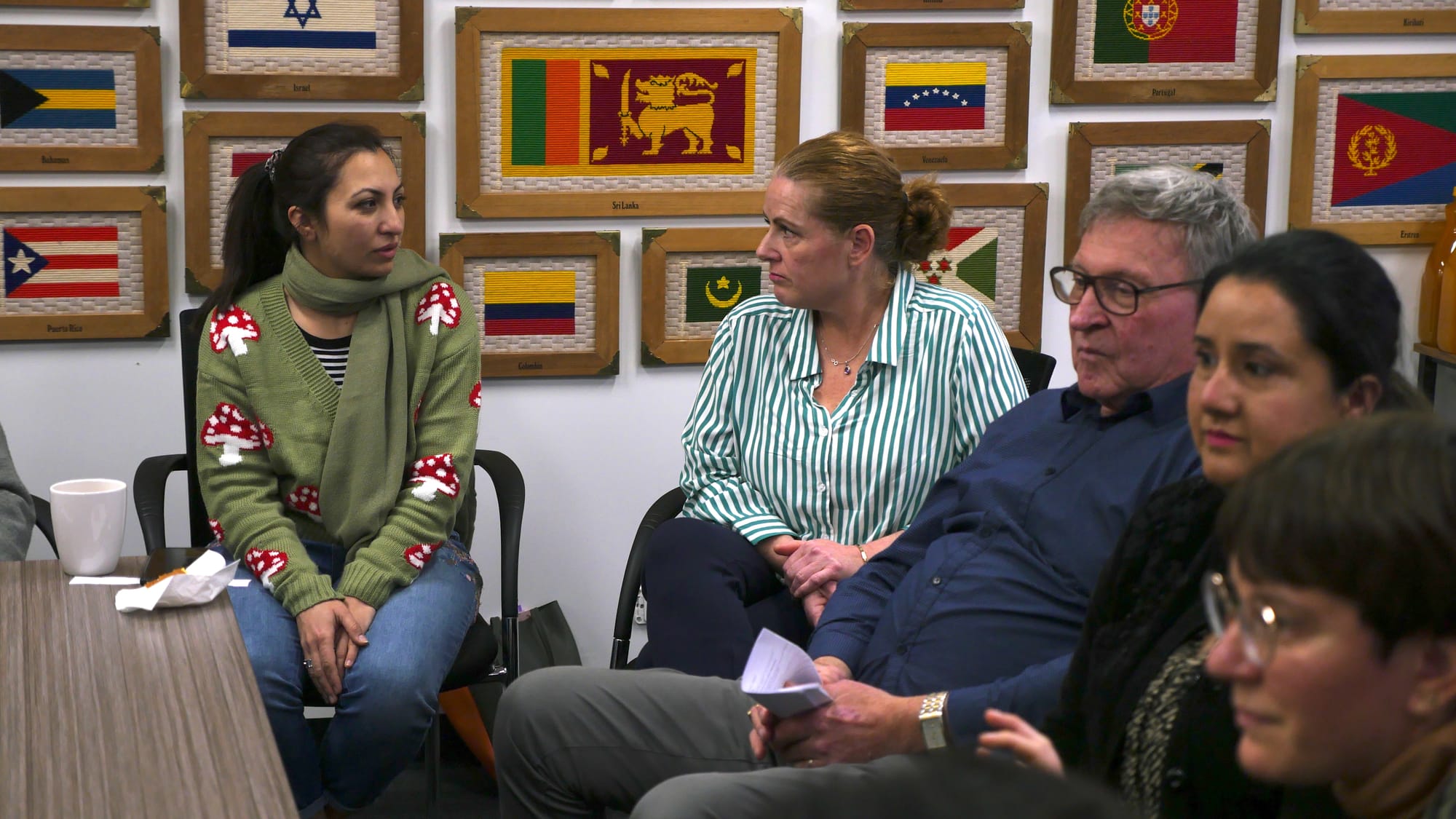
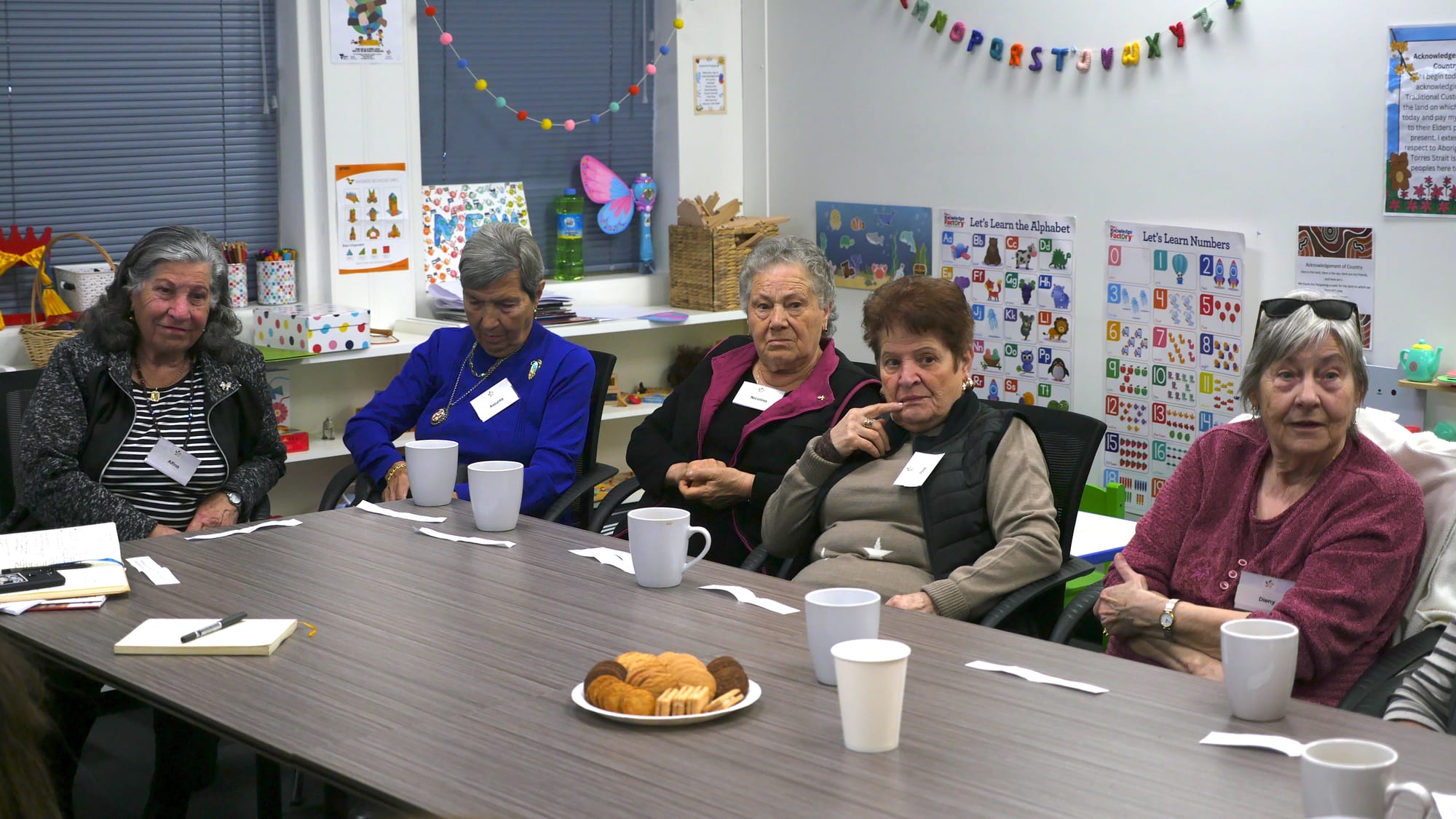
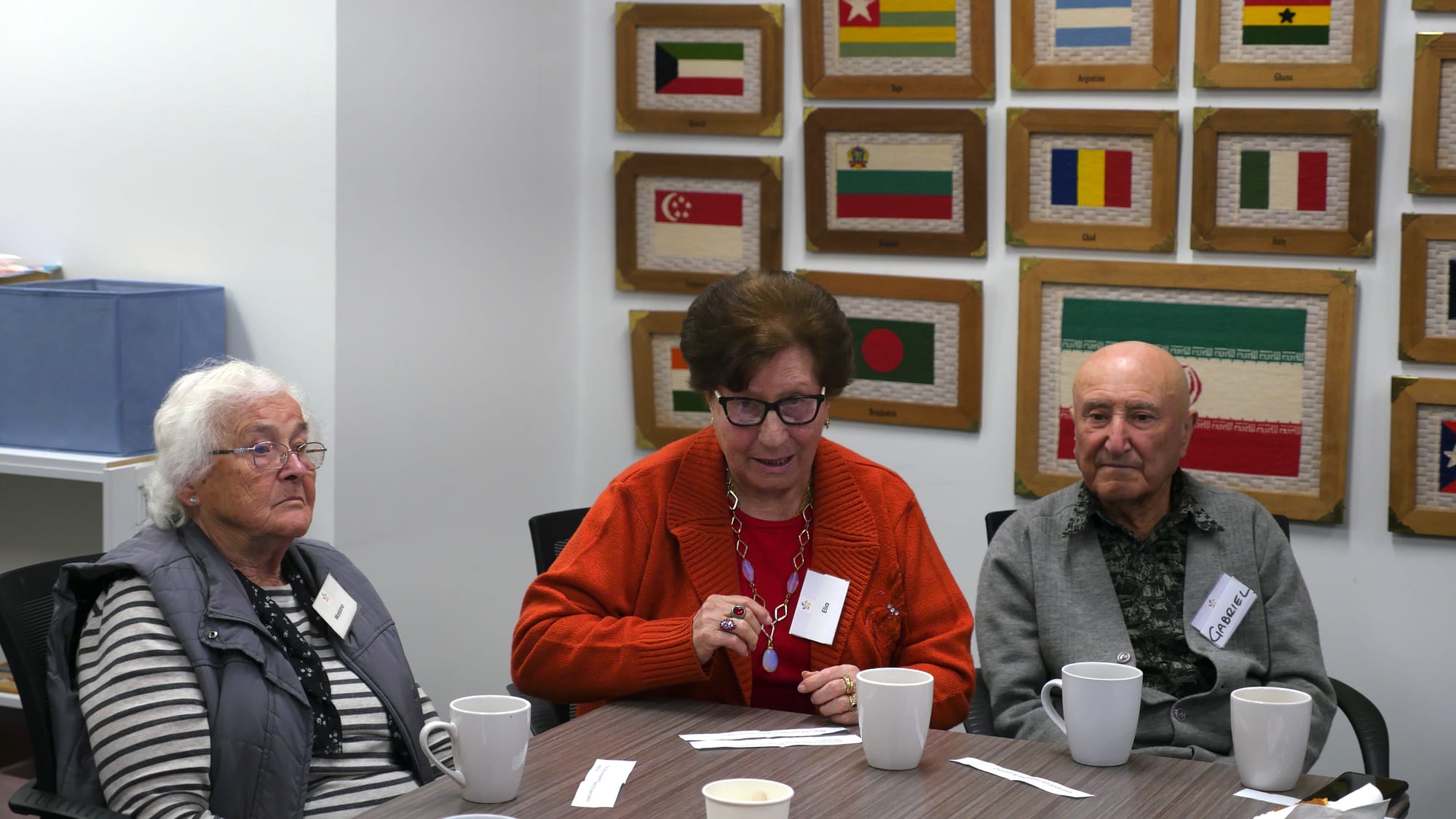
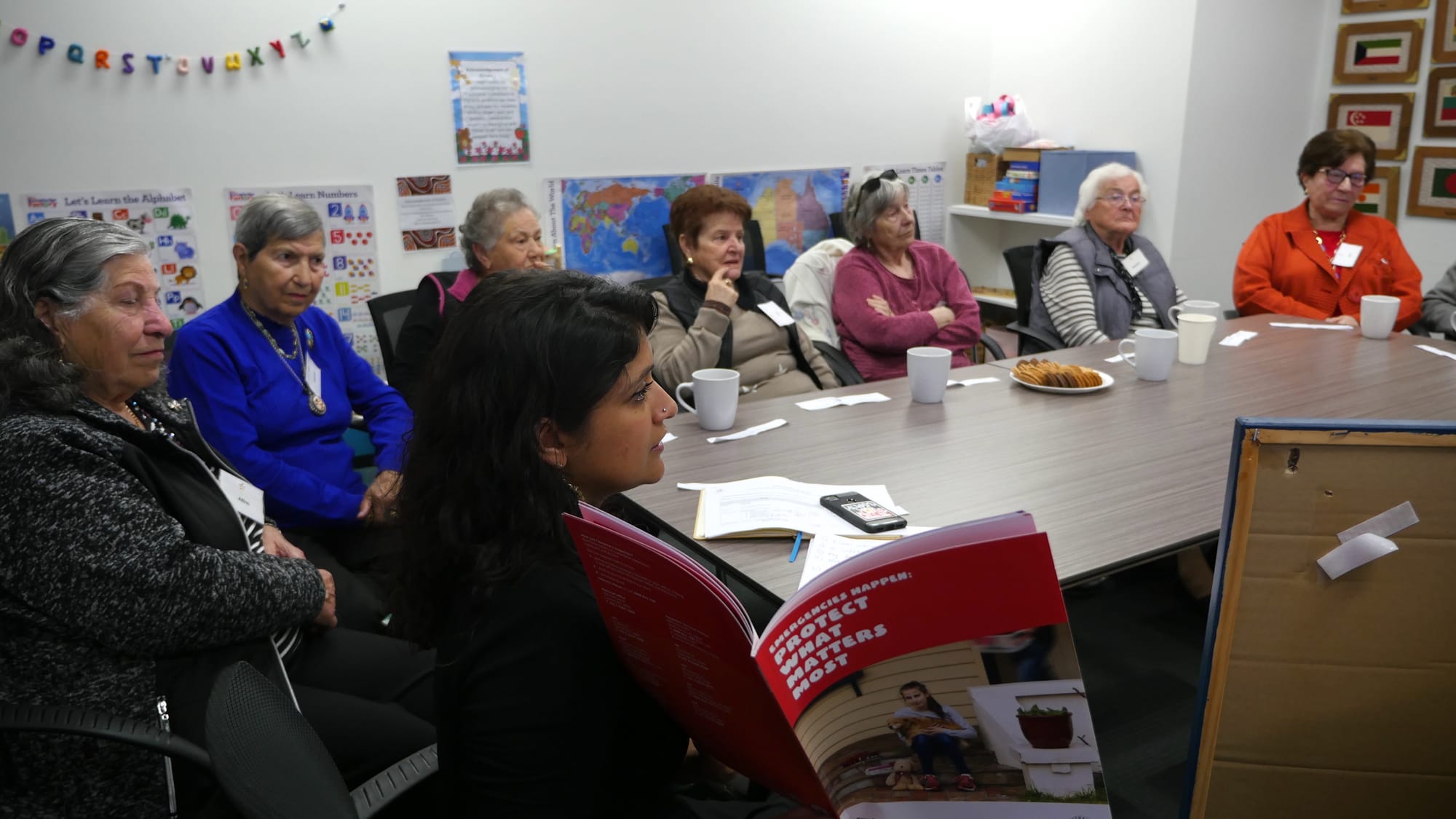
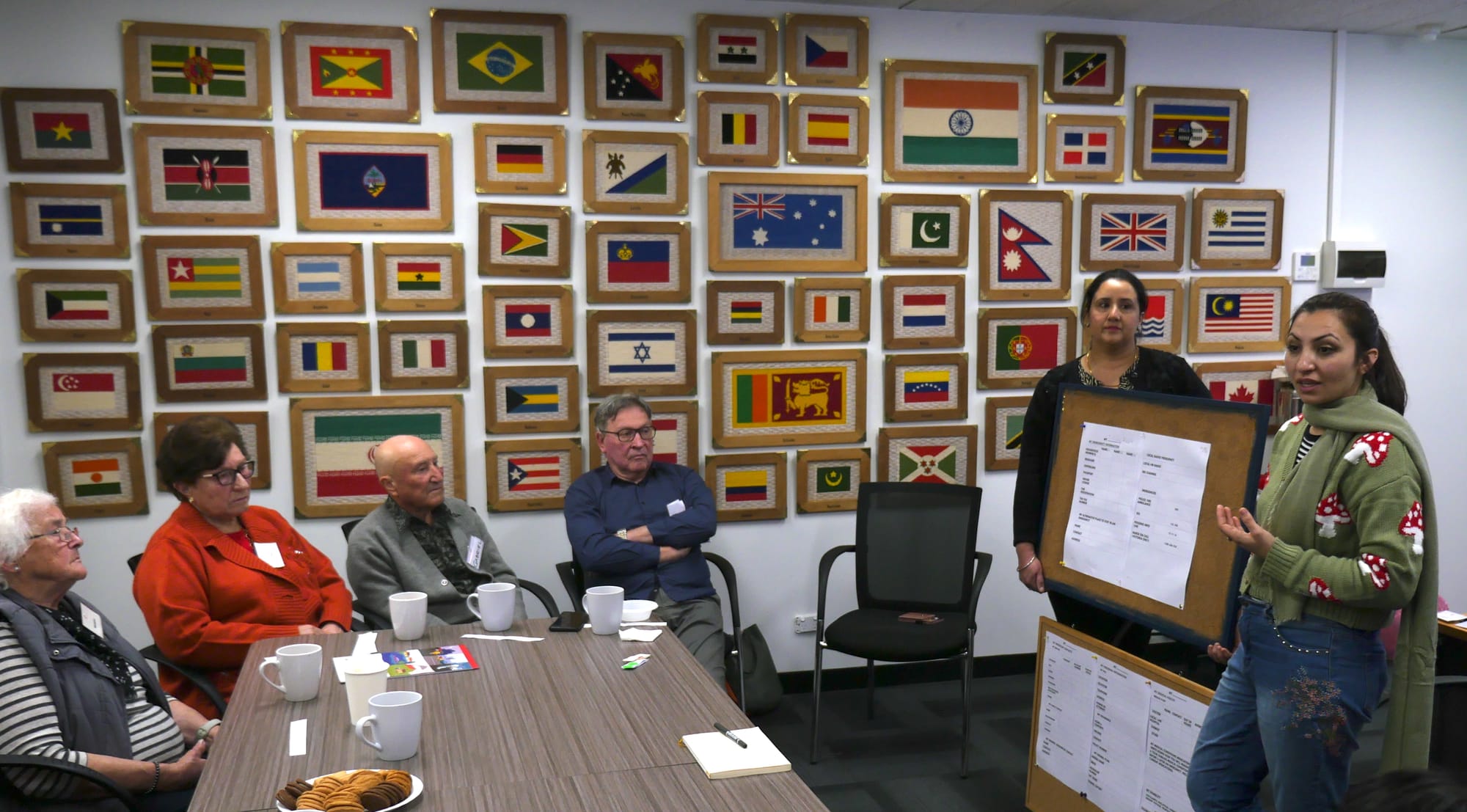
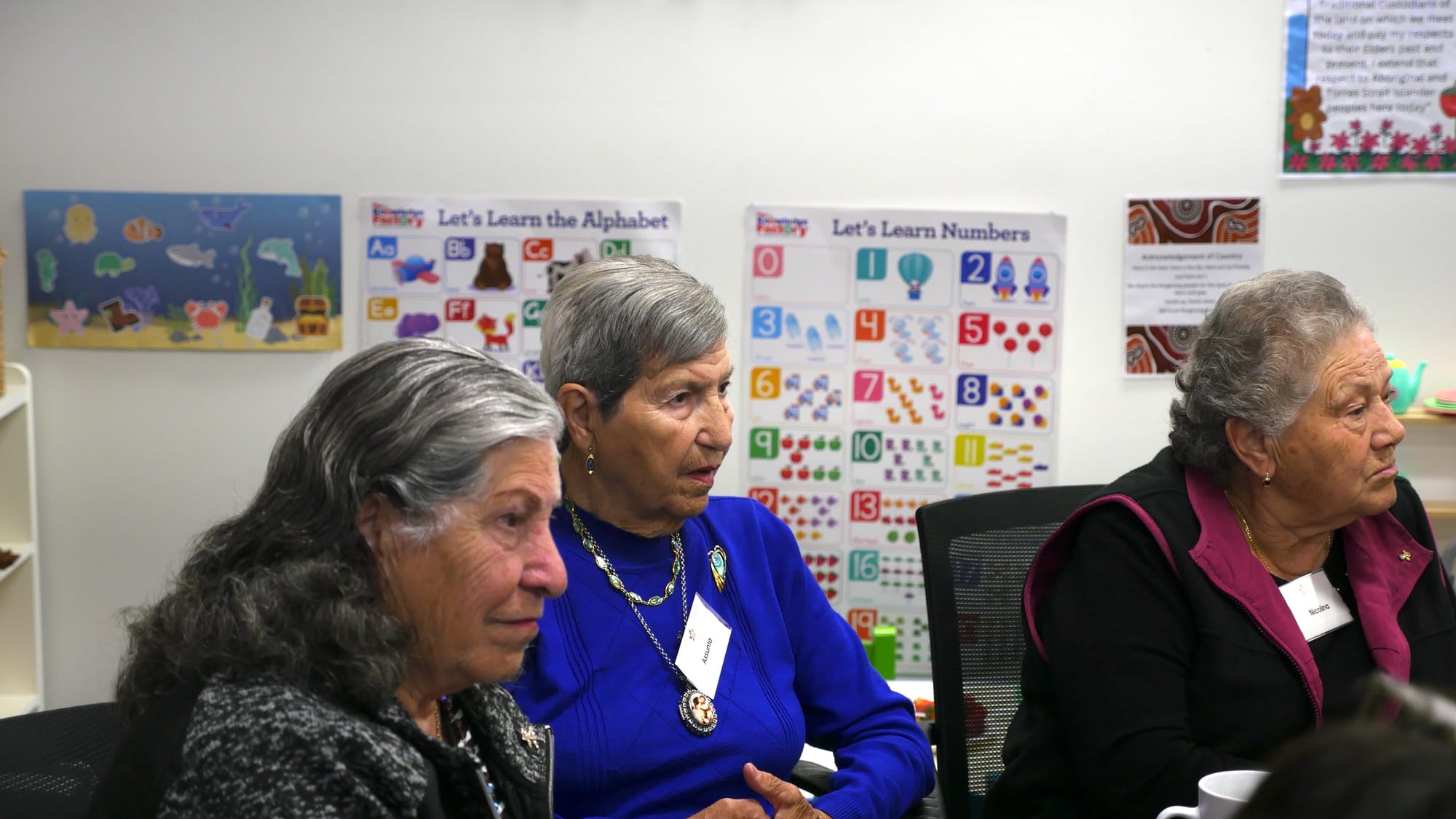
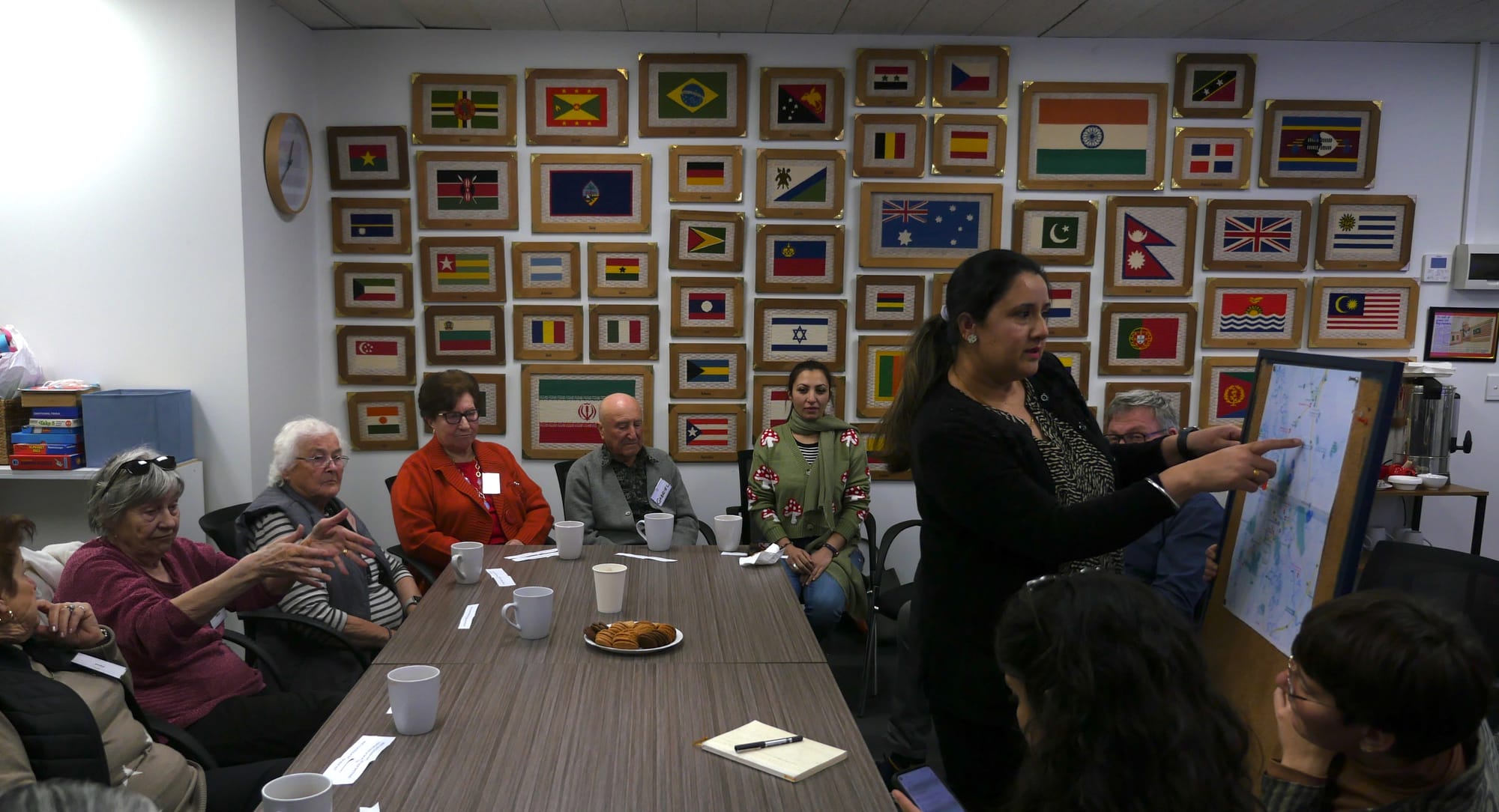
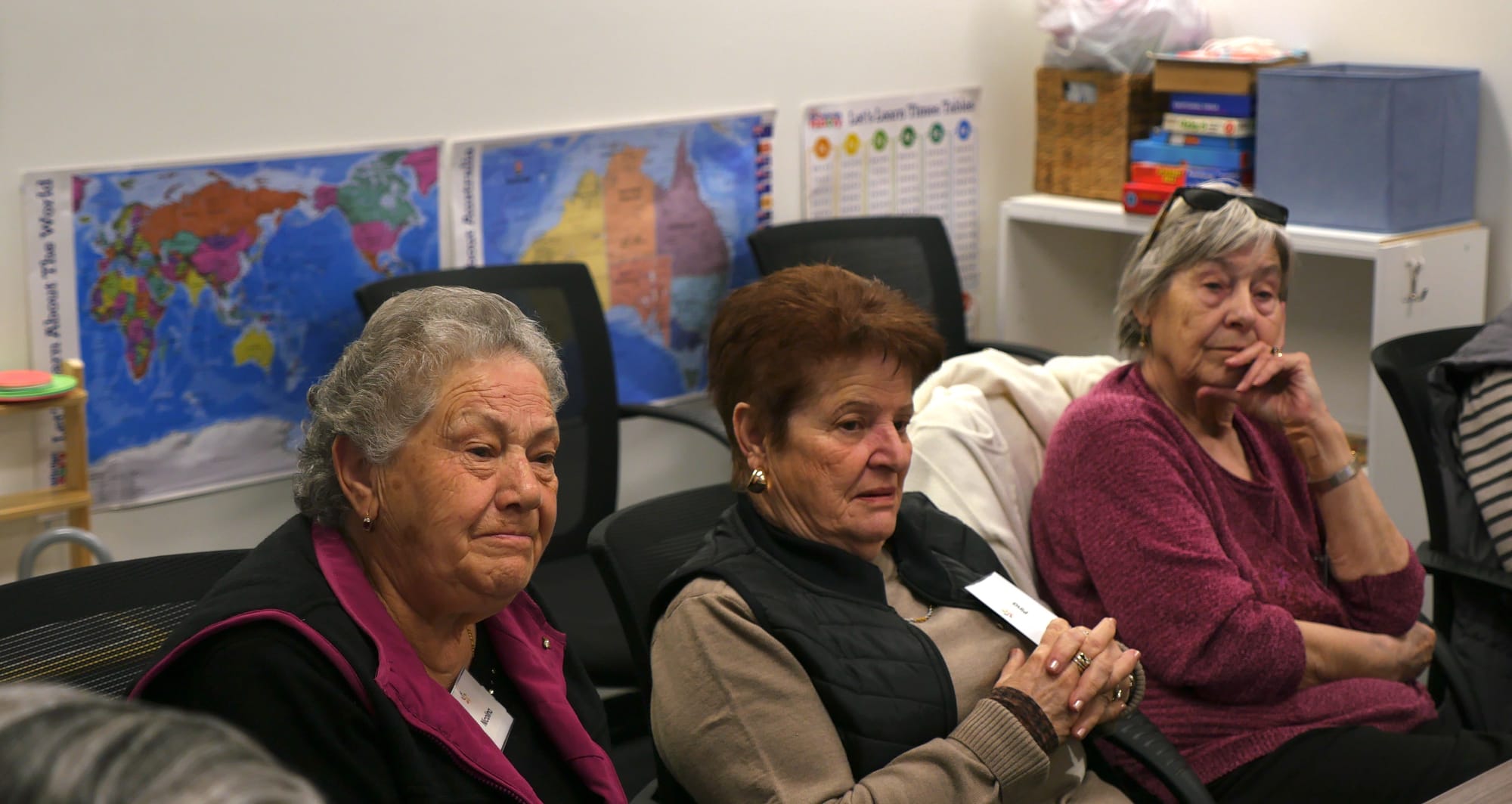
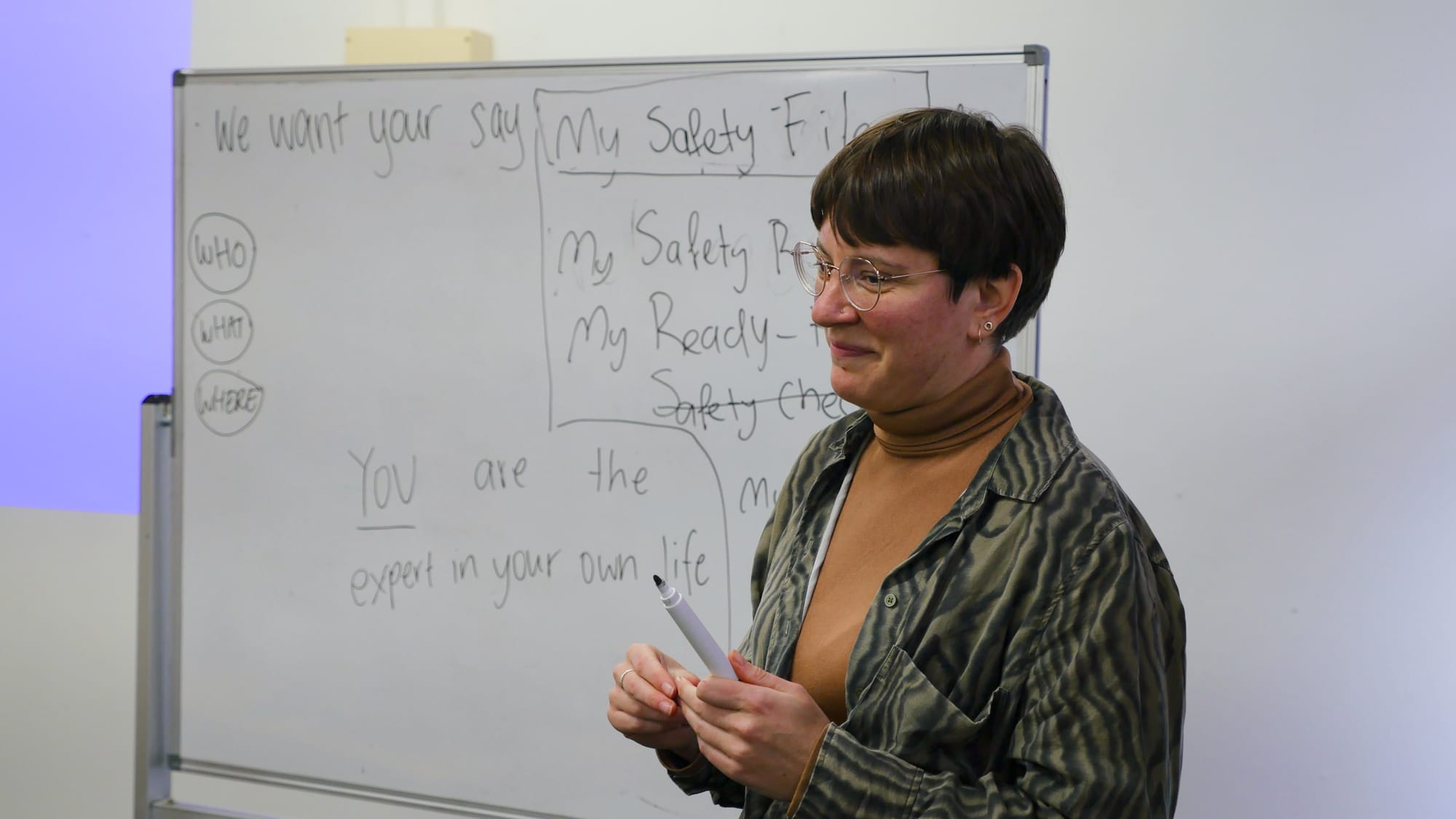
Images from The Multicultural Resilience Project
We forge partnerships with people, organisations and institutions to effect change
Through the health/energy hardship nexus project, we forged new connections and referral pathways across systems – incorporating the health system, energy assistance support programs and energy retailers – to identify and support people experiencing energy poverty. This flagship cross-sector project pulled together over 20 key orgnisations from across the health and energy systems to jointly advocate for increased funding and reform to end energy poverty.
Panel Q&A from 2024 health/energy webinar: "Energy is not on people's minds"
In the energy space, VCOSS also convened the Vic Utilities consumer advocates network and the Victorian Default Offer (VDO) Review 2024–2025 working group, facilitating discussion and joint advocacy to keep the VDO affordable. Our advocacy helped spark mainstream media coverage about Victorians on the default energy offer being slugged with energy retailers’ marketing costs.
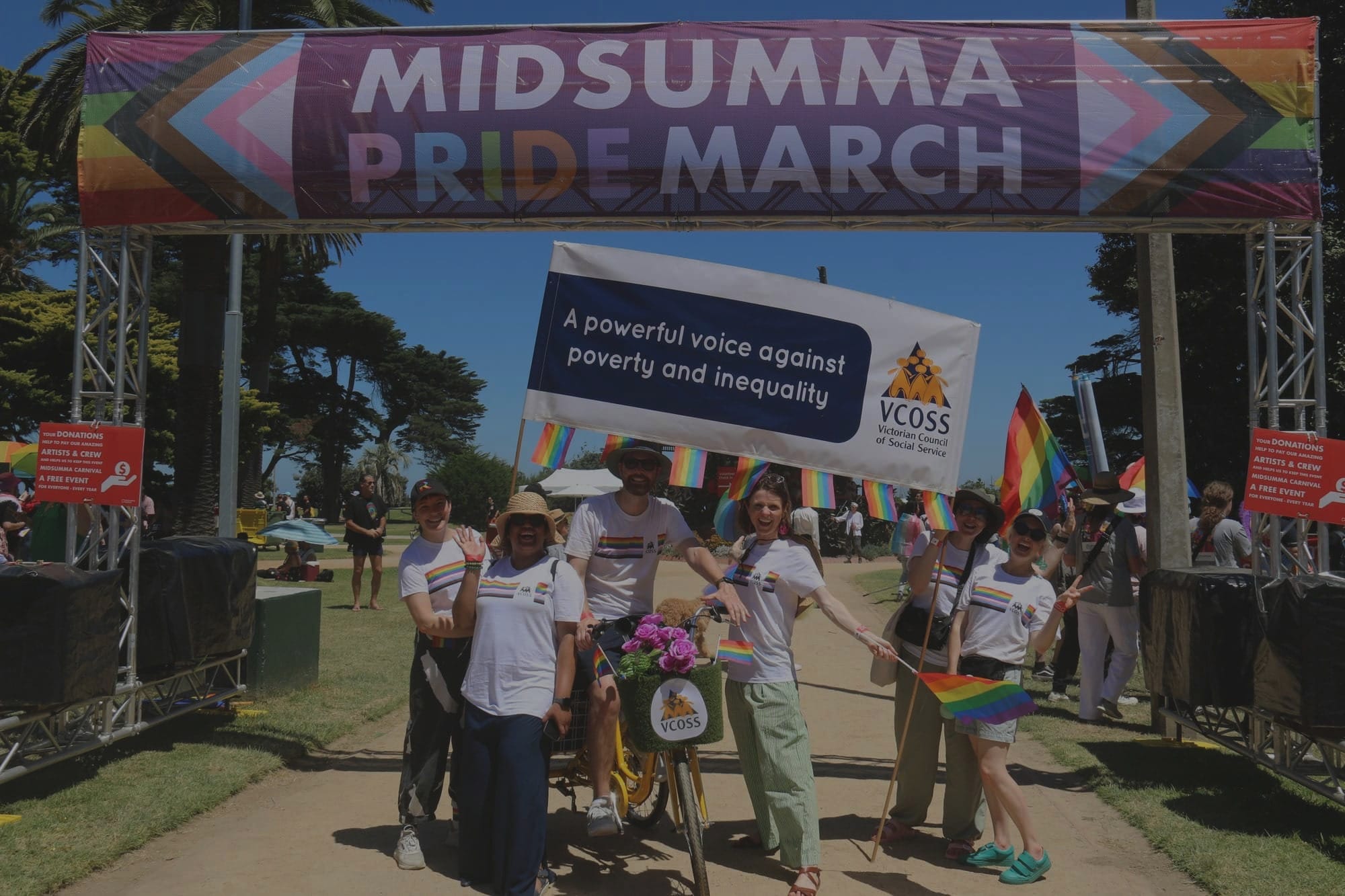
Thriving communities
Improving the wellbeing of individuals, families and communities is central to everything VCOSS does.
This means listening to what people want and need, and incorporating their lived experience into policy and program development.
It means advocating for an early intervention approach, so we can address problems before they become crises.
It means breaking down silos to take a holistic approach to tough social issues.
In 2023–24, VCOSS forged thriving communities through:
Climate Justice work
Climate justice requires policies and programs shaped by the voices of those most affected by climate change. VCOSS is committed to amplifying these voices. Our Climate Conversations engaged 109 people across eight communities in Victoria, to share their hopes, fears and insights about what they need for a fair climate future. The Conversations identified key policy and advocacy gaps and forged connections between community members, in some cases leading to ongoing climate action networks.
“It was moving to hear so many voices and so much energy focused on change.” Climate Conversations participant
A strong and prepared community sector is also essential to ensure that people facing disadvantage are supported and protected as the climate crisis intensifies. VCOSS’s flagship report on building sector resilience – A strong community sector for a safe climate – outlines practical steps for both government and community organisations to protect themselves and the communities they support.
And our submission to the Inquiry into Climate Resilience in the Built Environment set out policy changes needed to keep people safe and well through improving the resilience of our buildings and infrastructure
Iris from Warrnambool Community Climate Conversations
The Early Intervention Investment Framework (EIIF)
For Victorians to get the best outcomes from early intervention approaches, government departments need structures to enable effective collaboration, co-design and outcome measurements. To this end, VCOSS worked with government representatives, people delivering services and other sector experts to improve the design and delivery of early intervention initiatives so they can deliver better outcomes for Victorians.
The Wellbeing Economics Alliance (WEAll)
This Alliance is the hub for Australian leaders and organisations from every sector to connect, learn and support one another in advocating to change our economy’s goals, drivers and measures of success — from mere growth and profits for some, to wellbeing and thriving communities for all. VCOSS is part of the WEAll Australia Hub steering group.
Where we did it
Our work with Victorian communities took us around the state in 2023–24. The map below shows where we went for our major community engagements with the Climate Change Conversations, Multicultural Resilience Project and Listening Tour.
Map legend
Key numbers
50+
Meetings with government representatives
20+
Submissions and reports
100+
Sector coalition and network meetings
30+
Government advisory committee meetings, taskforces and groups
40+
Media stories and interviews
4,400+
Amplify subscribers
